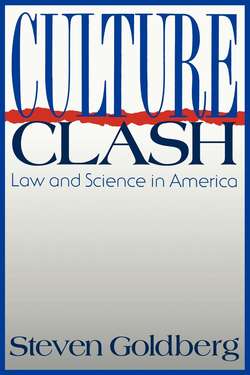Читать книгу Culture Clash - Steven Goldberg H. - Страница 13
На сайте Литреса книга снята с продажи.
The Limited Role of Practical Applications
ОглавлениеViewing scientists as members of a professional community who love progress may appear to leave out a central feature of the scientific endeavor: the emphasis on utility, on the technology that grows out of science and benefits the public at large. Many scientists do care greatly about the ultimate practical impact of their work, but that concern is often secondary to the fundamental search for knowledge. Practical utility is an uncertain basis for performing basic research because, as many scientists are aware, the link between science and technology is much more complex than the public usually supposes. The link between basic science and technology is often uncertain and indirect, and the technology that results is sometimes, from the scientists’ point of view, undesirable.
The uncertainty in the science-technology connection has three distinct aspects. First, many areas of scientific research turn out to be unproductive in scientific terms, let alone in terms of practical impact. There are no certainties in exploring the unknown and some research simply does not succeed. Second, even when research does result in a scientific advance, that is no guarantee of a practical payoff. Few discoveries have been more historic in intellectual terms than Einstein’s general theory of relativity, which concerns the fundamental structure of the universe. The general theory, however—unlike Einstein’s special theory of relativity, which led to nuclear energy—has had no practical technological applications in everyday life. Finally, even when a scientific theory does lead to important applications, they may be distant applications never imagined by the theorist. When Einstein published his initial work on the special theory of relativity, he had no idea it would ultimately lead to nuclear power. His first paper concerned fundamental properties of matter, space, and time; even he did not see the related energy-mass equivalence and its implications for several years.22
Finally, the science-technology link is not direct. It is rare for a scientific discovery to immediately lead to a new device. More often it takes a chain of scientific discoveries and engineering advances to bring a product to fruition. Indeed, although in theory inventions may always rely on some underlying scientific principle, many inventors have little or no knowledge of scientific theory and rely instead on their own intuitive ideas about improving previous inventions. Numerous studies, including those related to sophisticated post-World War II military inventions, show that many inventions are based primarily on earlier technology rather than on science.23 Of course, scientific theories may ultimately provide a full explanation of why a device works, but that is hardly an argument for the direct utility of science. Cooks have known for centuries that chicken soup makes you feel better; a modern scientific explanation of why that is so does not improve the world’s cuisine.
Moreover, even in those areas where the practical implications of science are enormous, scientists may be reluctant to boast about them if those implications are undesirable. Scientists cannot control how society uses newly discovered powers and many scientists would oppose some of those uses, such as new weaponry, that society chooses. Thus, although scientists might defend their work on the ground that new discoveries are inevitable and there is no telling where they will lead, that is very different from doing the research primarily because of its social impact.
In sum, whereas science can directly aid society, traditional scientists cannot rely on that as a sole or even fundamental motivation for their work. References to the unbreakable link between science and technology are useful at budget time, but not as useful as a central value for the working scientist.
The image of the scientist’s values that emerges here—the love of progress, the caution about utility—was well illustrated in J. Robert Oppenheimer’s speech to the Association of Los Alamos Scientists on November 2, 1945, a few months after the atomic bombing of Hiroshima and Nagasaki:
But when you come right down to it the reason that we did this job [building the bomb] is because it was an organic necessity. If you are a scientist you cannot stop such a thing. If you are a scientist you believe that it is good to find out how the world works; that it is good to find out what the realities are; that it is good to turn over to mankind at large the greatest possible power to control the world and to deal with it according to its lights and its values.24
Doing the scientific work that led to the atomic bomb is not a routine experience for scientists, but Oppenheimer’s speech isolates values that are typical. Doing research is “an organic necessity” because to be a scientist means “finding out how the world works” and “finding out what the realities are.” Last, chronologically and often in importance, is the “turning over to mankind at large” the fruits of your labors.
